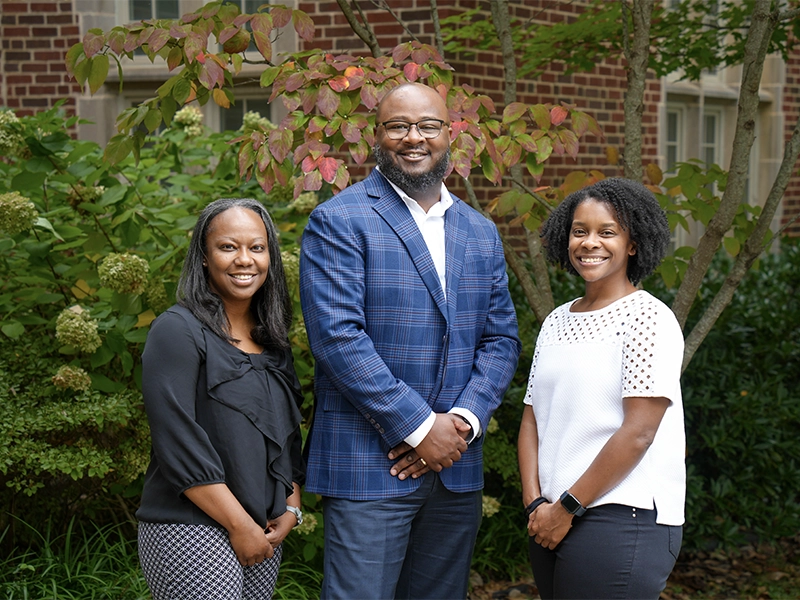New UT Consortium Studies Ways to Improve Lives of Black Families and Children

The new Consortium for the Study of Black Families and Children (CSBFC) brings together a community of UT scholars to address ways that structural racism manifests in the daily lives of Black Americans—both nationally and locally. These scholars join four other research and creative activity units launched in 2024 to bring new collaborative, interdisciplinary opportunities for College of Arts and Sciences faculty and students and partners across the university.
Associate Professor Deadric Williams, Department of Sociology, leads the initiative in collaboration with Associate Professor Jennifer Bolden and Assistant Professor Jasmine Coleman, both of the Department of Psychology, and in partnership with colleagues in the College of Social Work and the College of Education, Health, and Human Sciences.
Community Connections
Their work will inform colleagues, students, and the community on issues of economic inequality, health disparities, and children’s well-being.
“The purpose of this consortium is to foster a vibrant intellectual community at UT by attracting and supporting scholars and students engaged in high-quality research that benefits not only the university and Knoxville but also informs regional, national, and international dialogues,” said Williams. “We seek to cultivate critical thinking skills through innovative research methods and mentorship opportunities and develop and strengthen partnerships with organizations focused on Black Americans on local, state, national, and international levels.”
Each team member brings expertise to share across the consortium’s focus areas. Williams researches issues of structural racism, poverty, economic hardship, stress and health, and children’s well-being. Bolden’s and Coleman’s research focuses on children’s well-being in specific situations of trauma and violence, respectively.
Interdisciplinary Scholarship
The CSBFC also includes scholars from the College of Education, Health, and Human Sciences and the College of Social Work.
Associate Professor Lyndsey Hornbuckle, Department of Kinesiology, Recreation, and Sport Studies, researches health disparities in underserved groups, particularly African American communities. Her current work aims to reduce cardiometabolic risk through culturally relevant physical activity and exercise interventions.
Assistant Professor Andrea Joseph-McCatty, College of Social Work, researches children’s well-being with a specific interest in school discipline and trauma among Black girls.
“Collectively, our interdisciplinary team brings together a diverse set of theoretical perspectives and methodological approaches for a more holistic approach,” said Williams. “We plan to host a research conference that will bring together scholars and community leaders to share insights, discuss emerging trends, and collaborate on future research projects.”
Relationships for Outreach
Consortium leaders are planning outreach efforts supported by team members’ existing relationships with community organizations. Bolden’s Strengthening Underserved Communities by Cultivating Engagement and Supporting Scholars (SUCCESS) Initiative aims to build and sustain reciprocal community partnerships. She has ongoing partnerships with the Shora Foundation, Knoxville East Lions Club, UT’s Community-University Research Collaboration Initiative, and UT Psychological Clinic.
Joseph-McCatty actively works with the non-profit F.I.N.D. Design in Nashville to support school-based service delivery and conduct research on the socio-emotional needs of Black girls.
“We would also like to engage with Cherokee Health System in the future,” said Williams.
One plan already underway is to host hour-long brown bag presentations this fall as a method to introduce the consortium to the campus community and potentially bring more campus colleagues to the research mission.
“This will provide an intellectual space dedicated to our study, cultivating a diverse and inclusive research environment, facilitating groundbreaking research, bridging the gap between research and practice, promoting professional development, and fostering collaboration,” said Williams.
The consortium’s blend of established connections and their focus on fresh engagement throughout the community sets a strong foundation for their vision of transformative scholarship that will make life and lives better for the people of Tennessee.
By Randall Brown